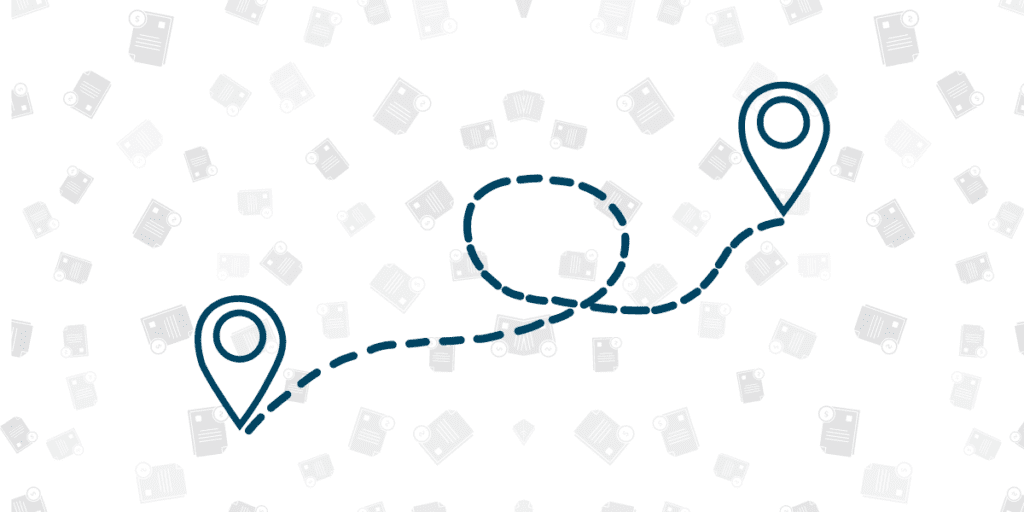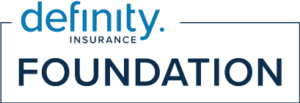
Blog
The journey that led to ONN’s new public policy agenda
I embarked on an ambitious journey last summer as we wrapped up our months-long strategic thinking process at ONN. My task was to put together a policy agenda that was a natural extension of ONN’s new strategic framework, reflective of the needs and nuances of our sector with a particular eye to equity in all senses of the word, and forward thinking. Not that hard, right?
I was nervous and worried as I initially felt a wave of imposter syndrome. How am I supposed to put this perfect document together that will essentially be ONN’s compass? Maybe it was imposter syndrome or the panic of my self-enforced deadline, but I immediately jumped into doing what I know how to do best, research.
I looked for and reviewed policy agendas from around the world. Those put together by nonprofit associations and networks with the scope of supporting nonprofits themselves, and those put together by nonprofits engaging in broader community issues. It was so interesting to see the ways in which our global sector was engaging in public policy and advocacy work – from specific, local advocacy to international advocacy – and the variety of issues they were working on – from democracy and climate to charitable incentives and funding reform.
Here are some organizing principles I noticed:
- Action-based: focused on outlining what the nonprofit is actively advocating on, including what they are monitoring, what they are supporting, and what they are leading.
- Time-based: outlined priorities for the year and/or legislative session or over a longer period of time.
- Vision-based: the beginning point of the agenda was to share hopes for ultimate and intended impact and the values that the agenda was rooted in.
- Audience-based: policy issues fell into one of the following categories or were a combination of them all – about the people the nonprofit serves and/or the community it is rooted in or about strengthening their organization/sector’s ability to serve people and communities.
- Government jurisdiction-based: the agenda was clearly for federal, provincial/territorial/state policy cycles or jurisdiction.
- Strictly issues-based agendas with no other content like a policy framework or policy positions.
Starting your journey of developing a public policy agenda
If I can do it, so can you. Building a public policy agenda for your organization is simply putting on paper the public policy and advocacy issues you want to engage on and how. While it may seem daunting that there isn’t a template to follow, the beauty is in the fact that you can make it whatever you want it to be. The agenda serves your organization.
In reviewing the many different agendas, here are a couple of starting points to think about:
- Developing a policy agenda is essentially a scoping exercise.
- What do you work on and what do you not work on?
- Are the issues identified in your agenda about the people you serve and/or the community you are rooted in or about strengthening your nonprofits ability to serve people and communities? Or both?
- A policy framework is different from a policy agenda. The agenda is the whole document whereas the framework articulates your vision/mission and values/principles, and other critical pieces guiding how you do the work. Policy agendas include some sort of vision/mission/values statement that is directly connected to or a repeat of the organization’s.
- What principles/values are guiding your work, stemming from the broader organizational vision/mission?
- How are you going to do the public policy and advocacy work?
- How are you thinking about equity in the agenda?
- Who or what is informing how you identify the issues you work on?
- Policy agendas can be as broad and general or narrow and specific as you want them to be.
- Does your agenda simply highlight what you support and what you don’t support?
- Does your agenda only outline the issue areas you work on and why or also your policy positions and the various policy initiatives within those areas you hope to advance?
- Policy agendas can be forward-thinking or based on the current policy cycle.
- Does your agenda represent what you want to push forward over a 3-5 year horizon or is it based on the current policy cycle?
ONN’s new public policy agenda
I am so very pleased to share our new public policy agenda.
This policy agenda plots a course with nine focus areas consisting of various policy files that we advance through either legislative, regulatory, budget, and/or implementation initiatives. And it aligns with ONN’s 2024-2026 strategic plan.
It is a values-based, forward-thinking agenda with a three-year horizon. The nonprofit sector plays an essential role in building thriving communities where people are connected, well-resourced, and effecting change for the public good (ONN’s ultimate impact). To continue doing so, we require an enabling public policy environment. We are advancing a bold and comprehensive public policy agenda that reflects the needs and aspirations of Ontario’s nonprofit sector.
It includes a robust policy framework which consists of:
- Vetting criteria: How we scope the issues we work on.
- Network approach: Who informs our agenda through what activities.
- Equity approach: How we are thinking about equity in our agenda and how it may show up.
There are nine focus areas identified, most of which are issues we have always worked on but are now more visible and present. Each focus area has a different ecocycle and is at a different stage in the same.
Some public policy areas might be more relevant right now, such as Social Purpose Real Estate (re: affordable housing, child care expansion) while other public policy issues are not because there is no window of opportunity and we have already completed the public policy work (re: Decent work and Volunteerism). Some policy issues require rejuvenation based on changing contexts (re: Nonprofit sustainability) and some are new areas that we are just beginning to explore to define the public policy work in (re: Active democracy).
ONN’s nine public policy focus areas are:
- Decent work
- Volunteerism
- Nonprofit sustainability
- Social purpose real estate
- Data and privacy frameworks
- Regulatory environment
- Community wealth building
- Anti-privatization of publicly-funded services
- Active democracy
I thought of the issues we work on in two ways. The first six issues are generally more about strengthening the sector’s ability to serve communities; they cross-cut and impact all subsectors in some shape or form. The last three issues are not only about strengthening our sector but also bringing to the forefront larger public policy issues facing our communities that we must play a role in advancing.
You’ll notice a couple of changes to our policy approach
We moved away from “priorities” to “agenda” because I think it speaks more to the long-term nature of the public policy issues we want to advance (no one has solved anti-privatization in one year!) and how many and the variety of small and large activities, individually and collectively, are required for the changes we seek.
We also moved away from an annual priorities document to a three-year guiding document so it is in line with the long-term work we want to do and coincides with the provincial election. The provincial election deeply shapes what public policy issues we work on because a change in government or the re-election will mean new government priorities that will impact our sector. It’s also a good enough time frame to think through what new issues need to be added, what needs to be taken out (hopefully because we made progress!), and sadly what just isn’t in our scope of work anymore or worth the time.
Another change you’ll notice is our approach to equity. Through the strategic thinking process the organization took the opportunity to formally outline its equity commitment which is now part of our strategic framework. Much of this was really writing down what we were already doing and combining and connecting the work across various equity issues. Even though we had an outlined approach to equity in our public policy and advocacy work, I struggled to put it on paper. I struggled to write down an approach because it felt “checklist-y” and “ad-hoc”. Moreover, while in my research I found beautiful equity statements opening up policy agendas, I rarely found something written on “how” the organization was doing the work, especially if they weren’t led-by, focused on, and/or serving equity-deserving communities.
I wanted to put down on paper an approach that was both authentic to ONN’s mission/role in our sector and meaningful. I was clear that I did not want to include nonprofits led-by, focused on, and/or serving equity-deserving communities in an ad-hoc manner but, rather, I wanted to highlight how the issues we were focusing on were also issues important to these organizations and communities. While the approach to equity may not be perfect, I think our Agenda points to a good start.
Ways nonprofits can use ONN’s policy agenda
The future of our sector and the communities we serve requires thoughtful and strategic advocacy, not advocating is not an option. A public policy agenda – a guiding document of the issues you advocate on – is a good way to start the advocacy conversations on your teams, with senior leadership, and even the board.
Nonprofits across the province are invited to use our public policy agenda to inform and expand their own public policy and advocacy work. Here are a few suggestions on how:
- Share our policy agenda and this blog with your team, senior leadership, Board of Directors, related working groups or committees, broader network, and/or communities you serve. You can highlight what you are supporting or working with ONN on and surface any desires to create your own agenda. .
- If your organization already has its own public policy agenda, incorporate some of our focus areas and initiatives in it, if there is alignment.
- Let us know how you are using our agenda by emailing me – pamela@theonn.ca.
Let’s come together to activate advocacy in our sector and in a way that meets this moment. We are indeed, stronger together.


